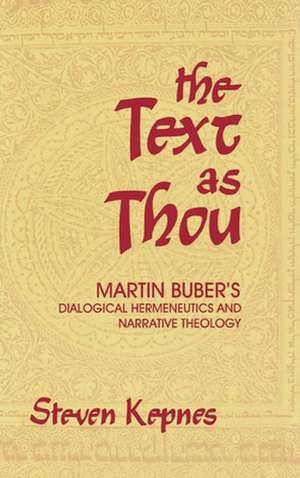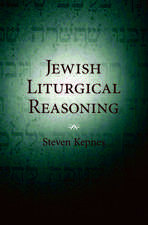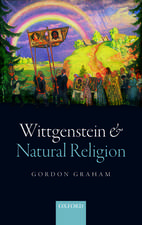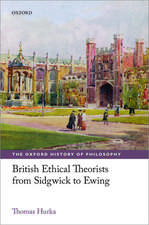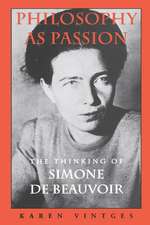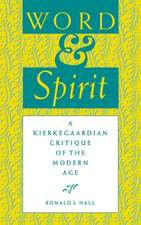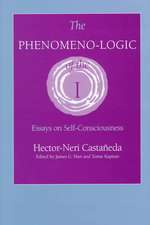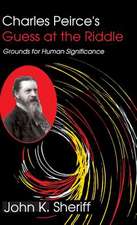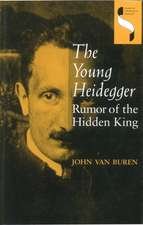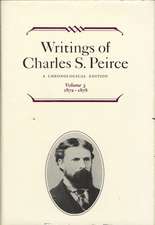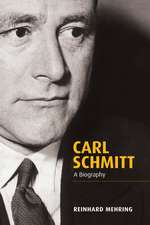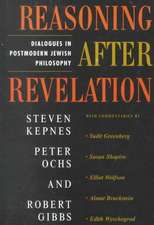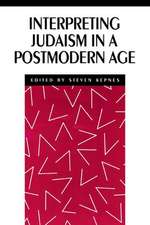The Text as Thou – Martin Buber`s Dialogical Hermeneutics and Narrative Theology
Autor Steven Kepnesen Limba Engleză Hardback – 21 noi 1992
Preț: 396.90 lei
Nou
Puncte Express: 595
Preț estimativ în valută:
75.97€ • 82.55$ • 63.86£
75.97€ • 82.55$ • 63.86£
Carte tipărită la comandă
Livrare economică 21 aprilie-05 mai
Preluare comenzi: 021 569.72.76
Specificații
ISBN-13: 9780253331274
ISBN-10: 0253331277
Pagini: 240
Dimensiuni: 152 x 229 x 15 mm
Greutate: 0.54 kg
Editura: MH – Indiana University Press
ISBN-10: 0253331277
Pagini: 240
Dimensiuni: 152 x 229 x 15 mm
Greutate: 0.54 kg
Editura: MH – Indiana University Press
Cuprins
Preface: The Linguistic Turn in Jewish Philosophy
Part I BuberÕs Hermeneutics
I. Romanticism, Dilthey, and BuberÕs Early Hermeneutics
II. I and Thou and the Dialogical Hermeneutic Method
III. BuberÕs Biblical Hermeneutic Theory
IV. Constructing a Buberian Hermeneutic Theory
Part II BuberÕs Narrative Theology
V. Narrative and the Philosophy of I and Thou
VI. ÒAutobiographical FragmentsÓ: Becoming Self through the Other
VII. Narrative Biblical Theology: Responding to the Eclipse of God
VIII. Conclusion: Buber and the Narrative Theologians
Notes
Bibliography
Index
Part I BuberÕs Hermeneutics
I. Romanticism, Dilthey, and BuberÕs Early Hermeneutics
II. I and Thou and the Dialogical Hermeneutic Method
III. BuberÕs Biblical Hermeneutic Theory
IV. Constructing a Buberian Hermeneutic Theory
Part II BuberÕs Narrative Theology
V. Narrative and the Philosophy of I and Thou
VI. ÒAutobiographical FragmentsÓ: Becoming Self through the Other
VII. Narrative Biblical Theology: Responding to the Eclipse of God
VIII. Conclusion: Buber and the Narrative Theologians
Notes
Bibliography
Index
Textul de pe ultima copertă
The Text as Thou establishes Martin Buber's central concept of ""I-Thou"" as the heart of a dialogical theory of textual interpretation and a narrative method for explicating Jewish philosophy and theology. Part One takes up Buber's application of his hermeneutic method to the texts of Hasidism and the Bible and the way in which that method can be applied to secular texts as well. His development of a dialogical hermeneutics links Buber to such contemporary theorists as Gadamer, Ricoeur, and Bakhtin. Part Two demonstrates that narrative provides privileged access to Buber's thought. By the retelling of Hasidic tales, biblical stories, and autobiographical anecdotes with powerful immediacy and concreteness, Buber succeeds in a daring attempt to formulate a modern narrative Jewish theology. Taken together, Buber's dialogical hermeneutics and narrative theology constitute a key element in the contemporary revival of the Jewish midrashic imagination.
